Chris Froome Is Playing Roulette, But Any 'Giro d'Italia Result Will Stand'
Chris Froome Is Playing Roulette, But Any 'Giro d'Italia Result Will Stand'
Chris Froome isn't admitting any fault for his 2017 positive test—instead, he's doubling down. What does that mean for the British cycling star's future?
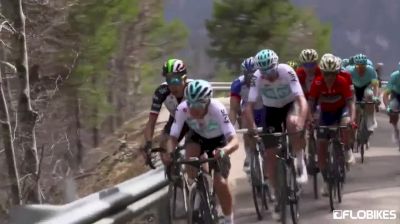
By Gregor Brown
The 2018 Giro d'Italia stage is set for this Friday in Jerusalem. Brit Chris Froome will embark on a quest to become one of the few cyclists to have won all three grand tours, but he is "playing roulette" with an anti-doping case developing in the background.
A legal expert close to the case says the Team Sky Tour de France star is gambling. Froome, the star rider of the 2018 Giro d'Italia from May 4-27, tested for twice the allowed limit of asthma drug salbutamol in the 2017 Vuelta a España last September. In the case that is due to be decided this summer, he is hoping to be exonerated but risks a possible two-year ban.
Either way, according to connected sources, the result Froome achieves when the Giro finishes near Rome's Colosseum on May 27 will stand. Froome could lose his Vuelta a España title, but a Giro spiral trophy would remain beside his four blue vases from the Tour de France.
"No, Froome doesn't risk losing the Giro title," explained the legal expert, who spoke on the condition of anonymity. "If I was the Giro d'Italia director, Mauro Vegni, I would say, 'You can race, but you are not going to ask for a back-dated suspension that would strip away the Giro result.'
"Any ban would start from judge's decision date. I doubt the judge would allow it to start from the 2017 Vuelta because it is Froome who is delaying the case. It's right that he's doing the medical research, but the ban will start later.
"I think he's also probably delaying the case until after the Giro to have a chance to win it."
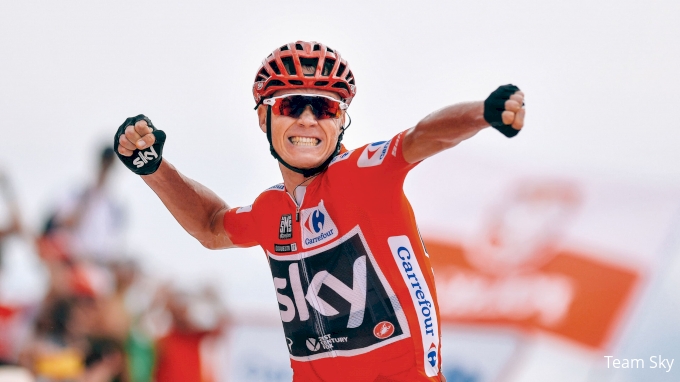
Froome at the Vuelta, stage 9
Froome's anti-doping case came to light on December 13 when news outlets leaked it. He is asthmatic and uses salbutamol via an inhaler. However, the limit for the specified substance is 1000 nanograms per milliliter (ng/ml); Froome's urine showed 2000.
He will not risk a four-year ban because salbutamol is a specified substance, not the heavy-hitter drugs EPO or testosterone that Lance Armstrong used. But when would any possible ban start, and how long would it last?
Many experts refer to the case of Diego Ulissi as an example. His salbutamol level read 1920. Ulissi admitted he took more puffs because he suffered after a crash and hard effort to rejoin the group in the 2014 Giro. The judge issued a nine-month ban.
However, Froome is taking a double-or-nothing approach by not admitting fault. According to report in January, Froome's star lawyer Mike Morgan will argue a kidney failure: that rather than excreting the metabolites of salbutamol after it had been processed by his liver, Froome's kidneys malfunctioned and accumulated them.
"And that's why he's playing roulette," the expert said. "The only possibility is that his lawyer shows that he had a problem extracting the salbutamol that day or just in general that he has a problem processing it. But he risks the judge saying that he took it to increase his performance and a full two-year ban."
Meanwhile, Froome has been racing. He helped Sky to a bronze medal in the team time trial in the 2017 world championship and took the same medal for himself in the individual race. This 2018 season, he completed three stage races with the last being a fourth overall in the Tour of the Alps. These results and the one from the Giro should remain regardless of the upcoming verdict.
Some followers point to Alberto Contador and how he was stripped of the 2011 Giro title. The Spaniard tested for clenbuterol on his way to winning the 2010 Tour. He continued to race, won the 2011 Vuelta a Catalunya and Giro, and placed fifth in the Tour. His ban was backdated to the 2010 Tour, which meant that all of the subsequent results were stripped.
"In this case, though, the delays are due to Froome,” the expert said. “It's then difficult for him to say, ‘Start my ban from the Vuelta a España.’ If he's banned, they will of course take away the Vuelta title because that was where the test was.
"Contador was different. The length of the procedures was due to an appeal by the World Anti-Doping Agency (WADA). But he took an agreement, saying, ‘You give me two years, but from the 2010 Tour.’ He scarified the 2011 Giro, but could race soon."
Whatever happens this summer, no one is happy.
"The process is too long," Giro race director, Mauro Vegni said. "Every time that something happens we have to wait a year to have a decision. Maybe it's time to look into changing the rules."
"I think a positive is a positive, whether you like it or not," said 2017 Giro winner Tom Dumoulin. "Then later on, maybe there's a good explanation for it, but if I was positive, I'd be happy to not race. I like those clear guidelines."
Join PRO to watch the 2018 Giro d'Italia live and on replay.
Related Content
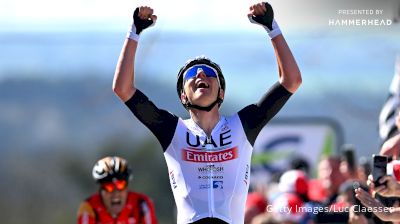 Relentless Pogacar Surges To 2023 Fleche Wallonne Triumph
Relentless Pogacar Surges To 2023 Fleche Wallonne TriumphApr 19, 2023
 Tadej Pogacar Never Gets Bored Winning - 2023 Fleche Wallonne
Tadej Pogacar Never Gets Bored Winning - 2023 Fleche WallonneApr 19, 2023
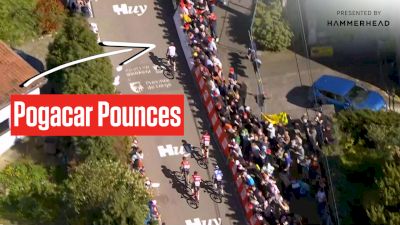 Tornado Tadej Pogacar Strikes In Final Meters Of Fleche Wallonne 2023
Tornado Tadej Pogacar Strikes In Final Meters Of Fleche Wallonne 2023Apr 19, 2023
 Flèche Wallonne 2023 Preview And Favorites
Flèche Wallonne 2023 Preview And FavoritesApr 18, 2023
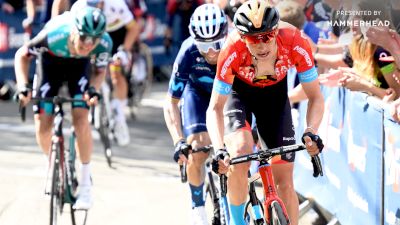 Champion Dylan Teuns ruled out of La Flèche Wallonne
Champion Dylan Teuns ruled out of La Flèche WallonneApr 18, 2023
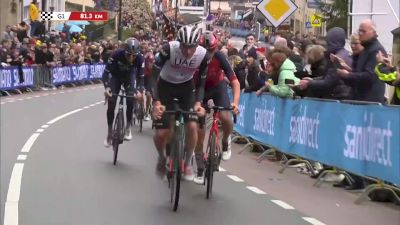 Extended Highlights: 2023 Amstel Gold Men
Extended Highlights: 2023 Amstel Gold MenApr 17, 2023
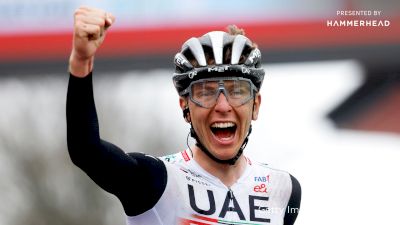 Tadej Pogacar Cruises To Victory At 2023 Amstel Gold Race
Tadej Pogacar Cruises To Victory At 2023 Amstel Gold RaceApr 16, 2023
 Tadej Pogacar Attacks Solo In The Amstel Gold 2023
Tadej Pogacar Attacks Solo In The Amstel Gold 2023Apr 16, 2023
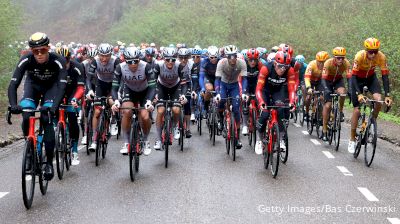 Replay: 2023 Amstel Gold - Elite Women And Elite Men
Replay: 2023 Amstel Gold - Elite Women And Elite MenApr 16, 2023